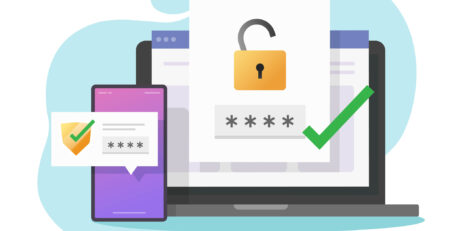5 Essential Cybersecurity Measures for Small Businesses
In today’s digital age, cybersecurity is a critical concern for businesses of all sizes. Small businesses, in particular, are often targeted by cyber criminals due to their perceived lack of robust security measures. Implementing effective cybersecurity practices is essential to protect your business from potential threats. Here are five essential cybersecurity measures every small business should implement:
1. Employee Training and Awareness
One of the most significant vulnerabilities in any organization is human error. Employees can inadvertently expose the company to cyber threats through phishing scams, weak passwords, or unsafe browsing habits. Regular training sessions should be conducted to educate employees about the latest cybersecurity threats and best practices. Topics to cover include:
- Recognizing phishing emails and suspicious links.
- Creating and managing strong passwords.
- Safe internet browsing and avoiding malicious websites.
- Reporting potential security incidents promptly.
By fostering a culture of cybersecurity awareness, you can significantly reduce the risk of human error leading to a security breach.
2. Implement Strong Password Policies
Weak passwords are a common entry point for cyber criminals. Implementing strong password policies is a simple yet effective way to enhance your business’s security. Encourage employees to use complex passwords that include a mix of letters, numbers, and special characters. Additionally, consider the following practices:
- Enforce regular password changes.
- Use multi-factor authentication (MFA) to add an extra layer of security.
- Avoid using the same password across multiple accounts.
Password management tools can also help employees generate and store strong passwords securely.
3. Regular Software Updates and Patch Management
Outdated software can have vulnerabilities that cyber criminals exploit to gain access to your systems. Regularly updating software and applying patches is crucial to maintaining a secure IT environment. This includes:
- Operating systems.
- Antivirus and anti-malware programs.
- Web browsers and plugins.
- Any other software used within your organization.
Automating updates and patch management can ensure that your systems are always protected against the latest threats.
4. Data Encryption
Data encryption is a vital measure to protect sensitive information from unauthorized access. Encrypting data ensures that even if it is intercepted, it cannot be read without the decryption key. Implement encryption for:
- Data at rest (stored data).
- Data in transit (data being transmitted over networks).
Using encryption tools and protocols, such as SSL/TLS for web traffic and VPNs for secure remote access, can help safeguard your business’s data.
5. Regular Backups and Disaster Recovery Planning
Data loss can occur due to various reasons, including cyberattacks, hardware failures, or natural disasters. Regular backups and a robust disaster recovery plan are essential to ensure business continuity. Key practices include:
- Performing regular backups of all critical data.
- Storing backups in multiple locations, including offsite or cloud storage.
- Testing backup and recovery procedures to ensure they work effectively.
- Developing a comprehensive disaster recovery plan that outlines steps to take in the event of a data loss incident.
By having reliable backups and a clear recovery plan, you can minimize downtime and quickly restore operations after a security incident.
Cybersecurity is an ongoing process that requires vigilance and proactive measures. By implementing these five essential cybersecurity practices, small businesses can significantly enhance their security posture and protect themselves from potential threats. Remember, the cost of a security breach can far outweigh the investment in robust cybersecurity measures. Stay informed, stay prepared, and keep your business safe.











Leave a Reply